If you’re wondering what the income limit for food stamps in Colorado is, you’re not alone. With rising food prices and the growing need for household support, thousands of Colorado residents turn to the Supplemental Nutrition Assistance Program (SNAP) for help each year. However, qualifying for food stamps depends on more than just need—it’s based on household size, gross and net income, and other eligibility requirements.
Colorado’s SNAP program is managed through the Colorado Department of Human Services (CDHS), and the income limits are adjusted annually based on federal poverty guidelines. Knowing the current income threshold is crucial, whether you’re applying for the first time or checking if you still qualify. The limits vary depending on household composition and whether certain expenses, such as childcare or medical costs, can be deducted from your income.
This comprehensive guide will include the exact numbers, how household income is calculated, what deductions are allowed, and what documents you must submit. By the end of this article, you’ll have a clear answer: What is the income limit for food stamps in Colorado?
What is the income limit for food stamps in Colorado?
The income limit for food stamps in Colorado varies by household size. In 2024, the gross monthly income limit for a family of four is $3,250. Net limits are lower.
Income Thresholds and Eligibility Rules for SNAP in Colorado
If you’re trying to figure out what is the income limit for food stamps in Colorado, it’s important to understand how the Colorado SNAP program determines eligibility. The state follows federal poverty guidelines and considers both gross and net income. Gross income includes all earnings before taxes or deductions, while net income accounts for allowable deductions like rent, utilities, child care, and medical expenses for elderly or disabled members.
As of 2024, the gross monthly income limit for a single-person household is about $1,580. For a family of four, that limit increases to approximately $3,250. These income thresholds are adjusted every October and vary depending on household size. In general, larger families qualify with higher income levels.
Applicants must meet both gross and net income limits unless they live in a household with someone who is elderly or disabled, in which case only net income is reviewed. Understanding your household’s financial status in relation to these guidelines is critical.
Knowing what is the income limit for food stamps in Colorado ensures you are financially prepared to apply, helps reduce the chance of denial, and positions you to receive the support your family needs without delay.
How Household Size Affects Eligibility
Household size is one of the most important factors in determining SNAP eligibility in Colorado. It directly influences both income limits and benefit amounts.
Household Size and Income Caps
When determining eligibility for SNAP benefits in Colorado, household size plays a central role. The larger the household, the higher the income limit you’re allowed. Income thresholds are structured to account for the financial needs of multiple people, so the limits increase incrementally with each additional household member.
Elderly and Disabled Exceptions
Special exceptions exist for households that include elderly or disabled individuals. In these cases, applicants may be exempt from meeting the gross income requirement and only need to qualify under net income limits. This provides added flexibility for those with fixed incomes and high medical costs.
Income Sources That Count
To determine your gross income, the state looks at all household earnings. This includes wages from employment, Social Security payments, pensions, child support, and unemployment benefits. All of these income streams must be disclosed during the application process.
Deductions That Help Lower Net Income
Colorado SNAP also allows specific deductions to reduce your net income. These may include rent or mortgage payments, utilities, medical expenses for qualifying individuals, dependent care, and legally obligated child support payments.
SNAP Benefit Amounts by Household Size
In addition to impacting eligibility, household size also determines the amount of SNAP benefits you may receive. Larger households that qualify generally receive higher monthly benefit amounts, ensuring support scales with family needs. Understanding these factors is essential when asking what is the income limit for food stamps in Colorado.
Documents and Application Steps for SNAP in Colorado
To apply for SNAP benefits in Colorado, it’s essential to gather the right documents and understand the application process. Being prepared not only speeds up approval but also helps ensure you meet all eligibility requirements under what is the income limit for food stamps in Colorado. Below are the key documents and steps involved:
Proof of identity: You’ll need a valid form of identification, such as a driver’s license, state-issued ID card, or passport.
Social Security numbers: Every household member applying for benefits must provide a valid Social Security number.
Proof of income: Include recent pay stubs, Social Security statements, unemployment benefit letters, or other forms of income documentation.
Proof of expenses: Provide records of your rent or mortgage, utility bills, child care payments, and out-of-pocket medical costs.
Proof of immigration status: If applicable, non-citizen applicants must submit legal residency documents or immigration papers.
Submit your application: You can apply online through the Colorado PEAK portal or in person at your local county human services office.
By organizing these documents ahead of time, you increase your chances of a quicker and smoother review. Understanding what is the income limit for food stamps in Colorado also includes knowing how to properly verify your income and household details when applying.
When and How to Apply for Colorado SNAP Benefits
Timing and process matter when applying for SNAP. Colorado allows you to apply at any time during the year, but the faster you complete your paperwork, the sooner you can receive benefits. Most applications are processed within 30 days, though expedited services are available for those in crisis.
Applications can be submitted through the Colorado PEAK website, which walks you through every step. After submitting your application, you may be asked to attend an interview—either by phone or in person—to verify your information.
During the interview, a caseworker will go over your income, expenses, and family details. If approved, you’ll receive an EBT card (similar to a debit card), which you can use at grocery stores to purchase eligible food items.
Understanding what is the income limit for food stamps in Colorado also means knowing the full application timeline, from submission to approval and first use of your benefits.
Why Knowing the Income Limit Helps Prevent Denials
Understanding what is the income limit for food stamps in Colorado is crucial when applying for SNAP benefits. Knowing where your household stands financially not only helps you qualify but also prevents costly mistakes that can lead to application delays or denials. Here are five reasons why being informed matters:
Empowering Informed Choices: When you’re aware of the income limits, you approach the process with clarity. This knowledge empowers you to make decisions confidently and avoid setbacks in getting the assistance your household needs.
Final Thoughts
So, what is the income limit for food stamps in Colorado? It varies based on household size, total gross and net income, and allowable deductions. These thresholds are updated annually, so staying informed is essential if you plan to apply or renew your benefits. Colorado offers a streamlined SNAP application process, helpful county support, and online tools through the Colorado PEAK system. Still, eligibility begins with knowing whether your income aligns with the state’s current requirements. Whether you’re applying for yourself or assisting someone else, understanding these guidelines can save time and prevent errors. With the correct documents and a clear grasp of income limits, you can approach the SNAP application process with confidence and accuracy.
FAQ’s
What is the gross monthly income limit for a family of four?
As of 2024, the gross monthly income cap for a four-person household is around $3,250. You must also meet the net income requirement after allowable deductions are applied.
Do I need to include all household income?
Yes, all sources of income must be reported, including wages, unemployment benefits, Social Security, pensions, child support, and any other recurring payments received by household members.
Can I deduct rent or medical bills from my income?
Absolutely. SNAP in Colorado allows specific deductions that reduce your net income, such as rent or mortgage, utilities, medical bills, child care expenses, and court-ordered child support.
How long does the application process take?
Typically, applications are reviewed and processed within 30 days. However, individuals or families facing urgent need may qualify for expedited services, receiving benefits within seven days.
Do income limits change annually?
Yes. Colorado updates its SNAP income eligibility guidelines each October to reflect changes in the federal poverty level and cost-of-living adjustments. Staying informed ensures ongoing qualification.
Avoiding Common Application Mistakes: Many applicants are denied due to incorrectly reported income or missing deductions. Knowing the exact income guidelines ensures that you fill out your forms accurately and include all required information.
Planning Ahead for Eligibility: When you understand the income thresholds, you can better plan your expenses and manage your financial situation to stay within the qualifying range. This foresight helps you prepare before you even start the application.
Tracking Annual Income Changes: Income limits for SNAP in Colorado change every year. Staying updated on the latest figures allows you to assess your eligibility correctly and apply or reapply with confidence.
Understanding Reapplication Rules: SNAP benefits require periodic recertification. Knowing the current income guidelines helps ensure you remain eligible and don’t lose benefits due to avoidable changes or oversights.











